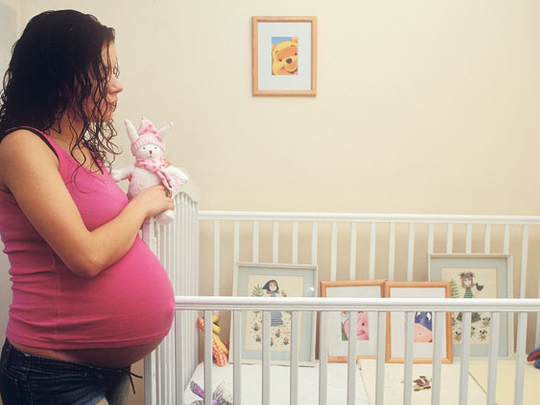
London: A horrifying picture of the extent of Broken Britain has been painted by an international report which exposes our moral failure on family values.
The study found we have the worst record on teen pregnancy in Europe and more children living in one-parent families than any other European country.
More of our single mothers are unemployed and on benefit than anywhere else in the continent, largely because we hand out so much in benefits.
Britain's rates for divorce and illegitimate births are among the highest in the Western world, and our mothers are among the oldest, putting their health and that of their baby's at risk.
Marriage undervalued
Critics say the UK is paying the price for its promotion of sex education to ever younger children and for the fact that, since the permissive society of the 1960s, so few value the institution of marriage.
The report, by the Organisation for Economic Co-operation and Development, which represents industrialised nations, is the first time that Britain's poor record has been illustrated so starkly. It shows:
Our teenage pregnancy rate is the worst in Europe and the fifth worst in the western world;
The proportion of children living in single-parent families is the worst in Europe and behind only the US. The proportion of lone parents out of work is the highest in Europe and the second in the industrialised world;
The divorce rate is the fourth highest in Europe;
The number of illegitimate births is the sixth highest in the continent.
Norman Wells, of Family and Youth Concern which researches the causes and consequences of family breakdown, said: "These figures paint a gloomy picture of a society that values the short-lived pleasure of casual sexual relationships more highly than marriage.
Fragmentation
"Those who imagine that the answer to high teenage pregnancy rates, family fragmentation and the state dependency culture is to be found in a form of sex education that values all types of relationships equally and sees nothing wrong with young people having a series of casual sexual relationships are deluded.
"If our long-term desire for young people is that they should enjoy a stable and satisfying family life, it isn't sex and relationships they need to learn about. Rather, they need to develop the character qualities of commitment, faithfulness, perseverance and patience that lie at the heart of an enduring marriage."
The information was contained in the OECD's Gender Brief, compiled earlier this year. It contains a series of graphs comparing social indicators across the organisation's 32 members. It shows that for teenage pregnancy, the rate in Britain is more than double that of France. On divorce, some 26 are granted in the UK per 10,000 inhabitants every year. The divorce rate in Ireland is just eight.
The report reveals that in 2007, some 43 per cent of births were out of wedlock, double that in Spain.
Willem Adema, economist in the OECD's social policy division, said: "What we see in the US and the UK, but stronger in the UK, is that you have a group of low-income groups where a lot of teenagers have a child. This is either because they don't know about the risk when engaging in sexual activity or they care less than in other countries.
Pregnancy: Some Women wait until 30
Women in Britain wait longer to have their children than in any other country in Europe, the OECD report revealed. The average age of a mother having her first child is almost 30 because of the numbers waiting until their late 30s or even their early 40s to start a family.
Older mothers are more likely to suffer complications in pregnancy, while their children are at higher risk of genetic disorders such as Down's syndrome. The average age at first birth is 29.8 compared to 25.2 in the US, 28.5 in France and 30.7 in New Zealand, the only country in the Western world where the age is higher than in Britain. Figures published earlier this year showed that some 27,000 babies were born to women over 40 last year in Britain, a number which has doubled over the past two decades. OECD report author Willem Adema said: "Over the years, in the '60s, '70s and '80s, Europe made leaps and bounds in the progress of female education attainment.
"When they had done that, women decided they wanted a career just as men do. But that can clash with their desire to be a mother so their response in the first instance is to postpone childbirth until as late as possible."












